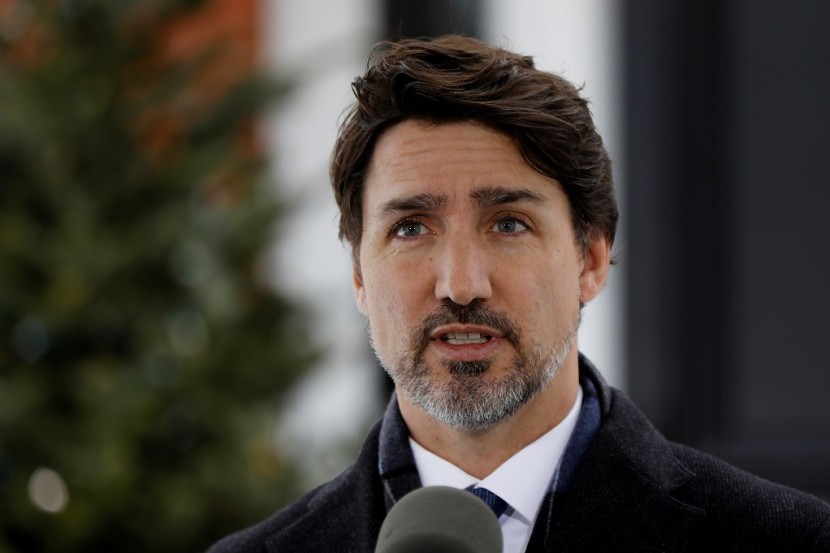
Canada is closing its borders to non-citizens except for U.S. citizens at the moment, due to the coronavirus pandemic.
Trudeau announced the border closing at a press conference at Rideau Cottage in Ottawa on Monday. "We can still slow the spread of this virus."
Among those also exempted are permanent residents, immediate family of Canadian citizens, aircrew, and diplomats. The ban does not affect the shipment of goods into Canada.
Trudeau's declaration came after the president of the European Commission, Ursula von der Leyen, proposed a ban on non-essential, incoming foreign travel for one month in the European Union.
The prime minister declared the move from outside his residence where he is self-isolating.
He stopped short of calls to close the Canadian-U.S. border, an act that allows expanding Hollywood film and TV production to continue north of the border.
According to a federal government source in Ottawa, Canada and the United States are in talks regarding the details of a proposed mutual ban on non-essential travel between the two countries.
The source spoke on the condition of anonymity in order to disclose details of ongoing negotiation. Canada and the U.S. are currently working on a joint statement.
Trudeau called the barring a "significant step" that aims to stem the spread of the novel coronavirus. He said the government was acting on the advice of public health officials.
In response, President Donald Trump tweeted, "We will be, by mutual consent, temporarily closing our Northern Border with Canada to non-essential traffic."
"Trade will not be affected. Details to follow!"
"We will be denying entry to Canada to people who are not Canadian citizens or permanent residents," according to Trudeau.
According to Trudeau, the exemption for U.S. citizens was warranted because of the level of integration of the two countries' economies. Further investigation is required into whether the Canadian-U.S. border may eventually have to be shut down. "We are not ruling out any measures. But we will take necessary measures when they become necessary."
Canada and the U.S. are anxious to arrest the spread of COVID-19 without hindering the crucial flow of trade and commerce in both directions over the Canada-U.S. border.
Trudeau began self-isolating after his wife tested positive for the novel coronavirus.
The exemption for U.S. citizens immediately raised some questions and concerns that COVID-19 could spread between the two countries.
On Tuesday, the European Union said it would close its external borders to non-citizens due to COVID-19.
The border between the United States and Canada is the world's longest border between two neighboring countries.
Canadian Deputy Prime Minister Chrystia Freedland declared at a press conference the potentially huge effect of closing the border. "Nearly 200,000 people cross that border every day and that border and that traffic that goes across that border is literally a lifeline for both the Canadians and the Americans on both sides of that border."








